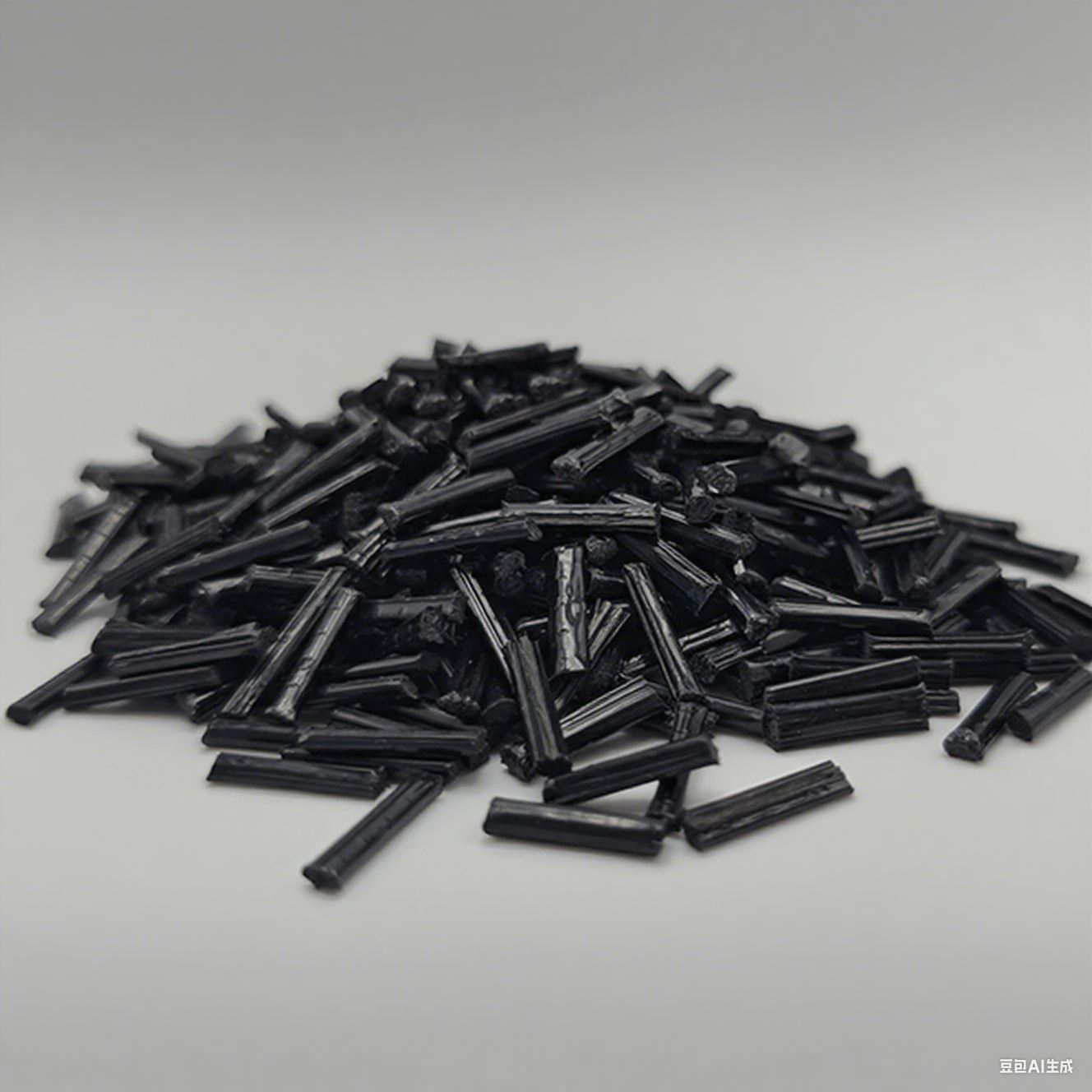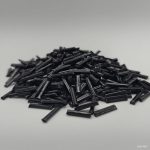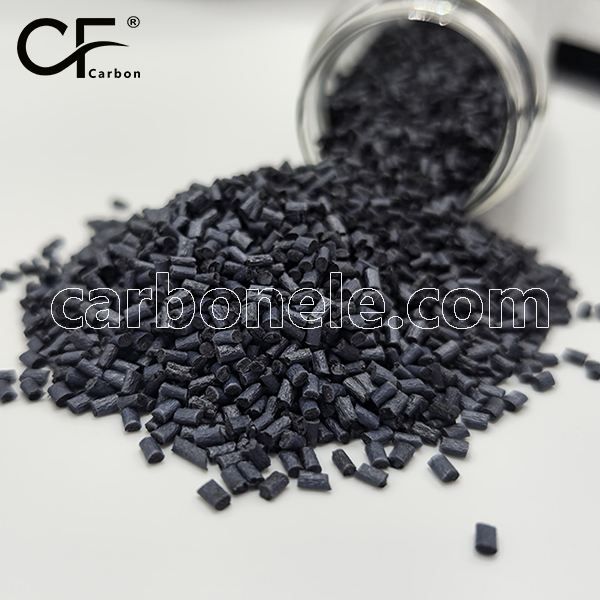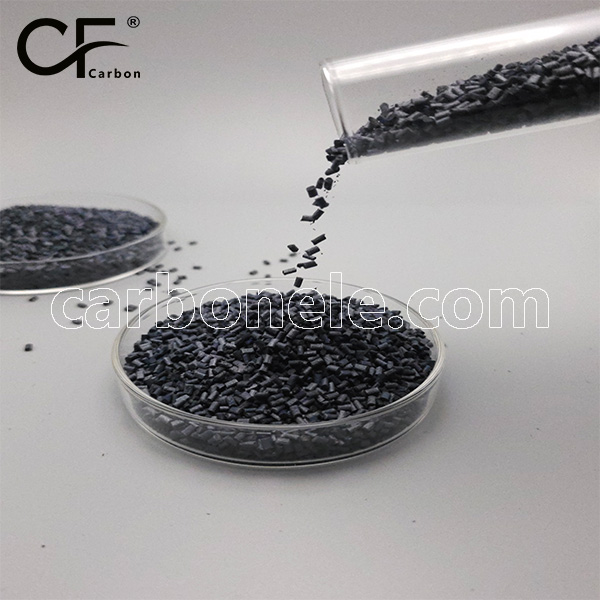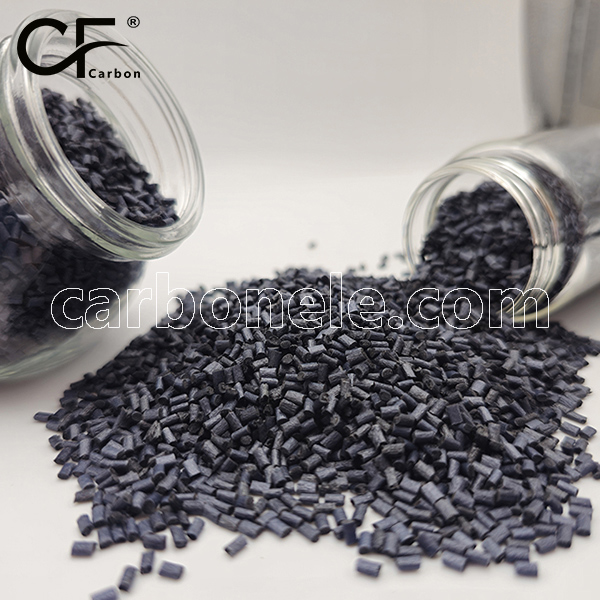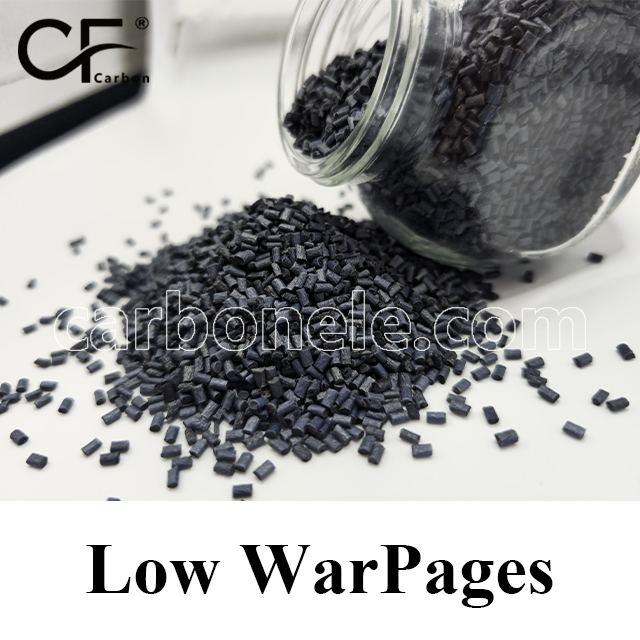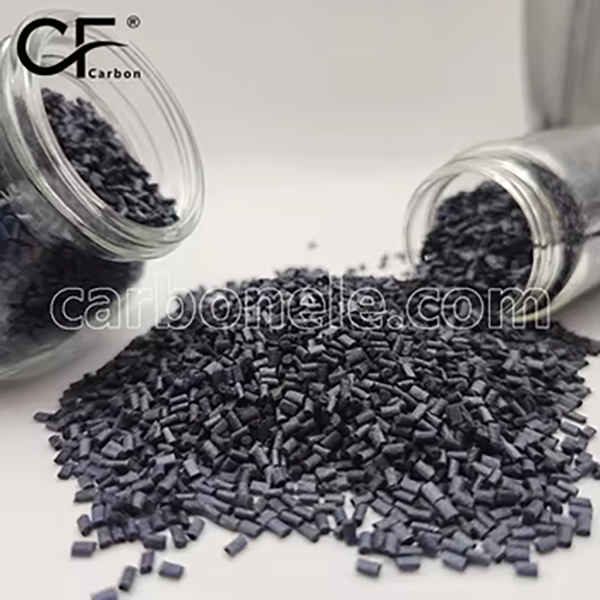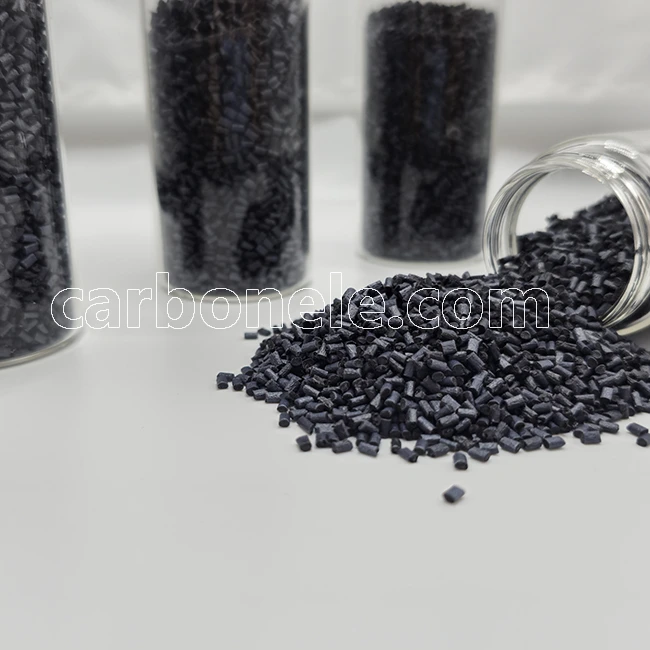
Premium PPS-CF10 for Aerospace Fasteners
Explore PPS-CF10, a premium carbon fiber reinforced PPS ideal for aerospace fasteners and high-performance industrial parts. It offers lightweight strength, excellent heat and chemical resistance, and long-term dimensional stability, making it the perfect choice for reliable aerospace components and advanced engineering applications.
- Model number: PPS-CF-BCA1
- Matrix Resin: Polyphenylene Sulfide (PPS)
- Reinforcing Filler: Carbon fiber
- Appearance: Granules
- Grade: Injection/extrusion grade
- Packaging: 25kgs/bag
Introduction to PPS-CF10
It is an advanced engineering thermoplastic composite designed for demanding industries that require a balance of mechanical strength, dimensional stability, and long service life.
Derived from polyphenylene sulfide reinforced with carbon fiber, it provides exceptional resistance to heat, chemicals, and stress, making it an ideal candidate for high-performance components.
One of the most notable application areas is aerospace fasteners. In aerospace, every detail matters. Materials must withstand extreme environmental conditions, heavy loads, and long-term exposure to thermal cycling.
It delivers a unique combination of lightweight stability, strength, and durability, helping engineers design fasteners that meet the rigorous standards of the aerospace sector.
Why Aerospace Fasteners Demand PPS-CF10
High-Temperature Performance
Aerospace fasteners are exposed to environments where traditional plastics may deform or degrade. It maintains its integrity under extreme thermal conditions, providing consistent performance and preventing structural failures during operation.
Lightweight with Superior Strength
Reducing weight is essential in aerospace design. It delivers mechanical strength while offering significant weight savings compared to metals.
This balance allows for lighter aircraft structures without compromising safety or performance.
Chemical and Fuel Resistance
Fasteners in aerospace systems must resist fuels, hydraulic fluids, and corrosive agents. It exhibits excellent resistance to chemical attack, ensuring the longevity of fasteners even under continuous exposure to harsh substances.
Dimensional Stability Under Stress
Vibration, pressure, and mechanical loads are constant in aerospace applications. It maintains precise dimensions, reducing the risk of loosening or failure over time.
This property is particularly valuable for aerospace fasteners that must remain reliable through countless cycles.
Key Benefits of PPS-CF10
Enhanced Mechanical Strength
The carbon fiber reinforcement in PPS-CF10 significantly increases stiffness and tensile properties compared to unfilled PPS.
This allows fasteners to withstand heavy loads and maintain functionality in critical aerospace structures.
Resistance to Creep and Fatigue
Creep resistance is vital for fasteners that must hold under sustained pressure. It resists deformation over long service periods, while its fatigue resistance ensures durability under repeated stress.
Cost-Effective Engineering Alternative
Compared to specialized aerospace alloys, it provides a cost-effective solution while meeting performance requirements. It enables manufacturers to achieve reliable fastener designs with lower production costs.
Design Flexibility
With PPS-CF10, engineers can explore complex geometries that are difficult to achieve with metals. This opens opportunities for innovative fastener designs that improve both function and efficiency.
Application Example: Aerospace Fasteners
Structural Integrity in Aircraft
It aerospace fasteners contribute to the structural stability of aircraft components by maintaining consistent strength and resistance under dynamic flight conditions.
Their lightweight nature directly supports energy efficiency and improved payload capacity.
Durability in Spacecraft Components
In spacecraft, materials face extreme thermal cycling and vacuum conditions. It fasteners perform reliably under these challenges, offering long-term stability without degradation.
Reliability in Engines and Fuel Systems
Engine compartments and fuel systems demand fasteners that can withstand exposure to high temperatures and chemicals. It ensures that fasteners remain secure and intact, protecting critical systems from leakage or mechanical failure.
Design Opportunities with PPS-CF10
Complex Fastener Shapes
PPS-CF10 supports manufacturing of intricate fastener designs through advanced molding techniques, enabling aerospace engineers to create lightweight solutions with high precision.
Surface Quality and Aesthetic Options
Fasteners made from PPS-CF10 can achieve smooth surfaces, which reduces friction and wear. Aesthetic qualities also ensure that fasteners integrate seamlessly into modern aerospace designs.
Compatibility with Advanced Manufacturing
PPS-CF10 can be processed through injection molding and precision machining, making it suitable for both high-volume production and specialized aerospace applications.
Comparison with Alternative Materials
PPS-CF10 vs Metals
Metals provide strength but add significant weight and are prone to corrosion. PPS-CF10 offers a lightweight, corrosion-resistant alternative while maintaining high mechanical performance.
PPS-CF10 vs Standard Plastics
Unreinforced plastics lack the necessary stiffness and stability required for aerospace. PPS-CF10 bridges this gap by delivering strength, durability, and chemical resistance.
PPS-CF10 vs High-Cost Composites
Other composites may outperform PPS-CF10 in extreme environments but often come with high costs. PPS-CF10 delivers a practical balance of performance and affordability for aerospace fasteners.
Industry Applications Beyond Aerospace
While aerospace fasteners are a primary application, it is also valuable across multiple industries:
Automotive: Under-the-hood fasteners, brackets, and connectors exposed to high temperatures.
Electronics: Precision components requiring thermal stability and chemical resistance.
Industrial Machinery: Load-bearing fasteners for environments involving wear and continuous stress.
Energy Sector: Components exposed to fuels, oils, and aggressive chemicals.
Sustainability Advantages of PPS-CF10
PPS-CF10 contributes to sustainable aerospace and industrial design. Its lightweight properties reduce overall energy consumption in aircraft.
Its long lifespan decreases the need for frequent replacements, lowering waste generation. Moreover, its manufacturing process consumes less energy compared to certain metalworking techniques, making it an environmentally responsible material.
Future Outlook of PPS-CF10
The demand for lightweight, durable, and high-performance materials is increasing across aerospace and advanced manufacturing industries.
PPS-CF10 is well-positioned to meet future requirements, particularly as aerospace engineers seek innovative materials for next-generation fasteners. With continuous advancements in material science, it is expected to play an even larger role in high-tech applications.
Conclusion
PPS-CF10 is a premium material engineered to deliver stability, durability, and reliability in aerospace fasteners. Its unique balance of high strength, lightweight profile, and chemical resistance makes it an outstanding choice for the aerospace industry.
By integrating PPS-CF10 into fastener designs, manufacturers gain long-term reliability, cost efficiency, and sustainable performance.
For aerospace engineers and manufacturers seeking dependable solutions, It provides the material advantage needed to achieve the next generation of lightweight, high-performance fasteners.
Friction coefficient of PPS-CF
The friction coefficient of PPS (Polyphenylene Sulfide) typically ranges from 0.3 to 0.45, while PPS-CF (Carbon Fiber Reinforced Polyphenylene Sulfide) has a lower coefficient, generally between 0.2 and 0.35. The addition of carbon fiber improves hardness, wear resistance, and reduces friction, making PPS-CF more suitable for high-load, high-temperature, and high-friction applications.
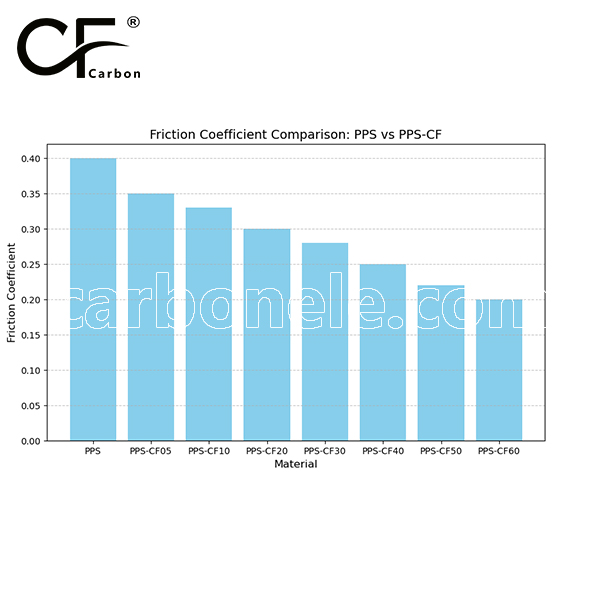
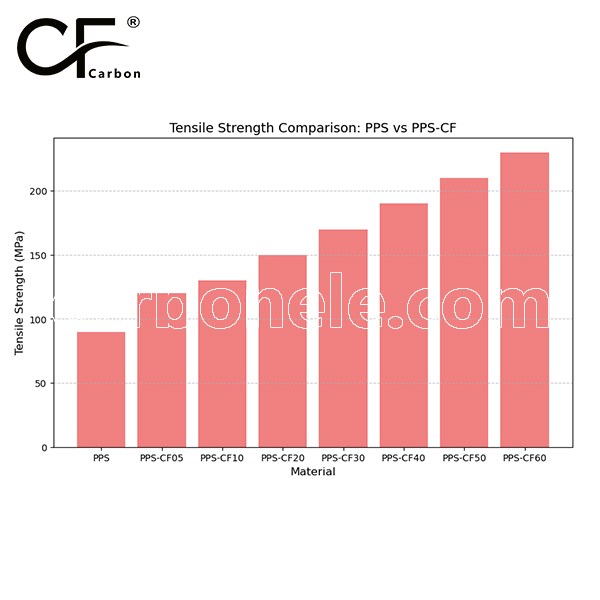

Frequently Asked Questions
Carbon (Xiamen) New Material Co., Ltd. aims to provide buyers with "one-stop" worry-free high-quality services. Here you can find all information about carbon fiber engineering plastics. If you still have questions, please send us an email for consultation!
-
How can I contact the manufacturer of a product that interests me?
When you find a product you are interested in, you can contact the manufacturer directly by sending an email and we will get back to you as soon as possible.
-
How do I find the products that interest me?
All you need to do is enter the keyword, product name in the search window and press the Enter key on your keyboard. Your search results page will then be displayed. You can also search within the product category pages on the home page. Each category is divided into subcategories, allowing you to refine your search and find products that interest you.
-
Where will I find a buying guide?
Please contact our after-sales service directly and we will provide you with a comprehensive operating guide.
-
What are CF Reinforced Thermoplastic Composites?
CF Reinforced Thermoplastic Composites are materials where carbon fibers are incorporated into a thermoplastic matrix. They combine the strength and stiffness of carbon fibers with the processability and recyclability of thermoplastics. For instance, they are used in automotive parts like bumper beams.
-
What are the benefits of CF Reinforced Thermoplastic Composites over traditional composites?
The key benefits include faster production cycles, easier recyclability, and better impact resistance. They also offer design flexibility. An example is in the manufacturing of consumer electronics casings where complex shapes can be achieved more easily.
-
How are CF Reinforced Thermoplastic Composites processed?
Common processing methods include injection molding, extrusion, and compression molding. Injection molding is widely used for mass production. For example, in the production of small components for the medical industry.
-
What industries use CF Reinforced Thermoplastic Composites?
They are utilized in aerospace, automotive, medical, and sports equipment industries. In aerospace, they can be found in interior components. In the medical field, they might be used in prosthetics.
-
How does the carbon fiber content affect the properties of the composites?
Higher carbon fiber content generally leads to increased strength and stiffness but may reduce ductility. A moderate content is often balanced for specific applications. For example, a higher content might be preferred in structural parts of a race car.
-
What are the challenges in using CF Reinforced Thermoplastic Composites?
Challenges include higher material costs, complex processing equipment requirements, and ensuring uniform fiber dispersion. Issues with adhesion between the fibers and the matrix can also arise. An example is in achieving consistent quality in large-scale production.







